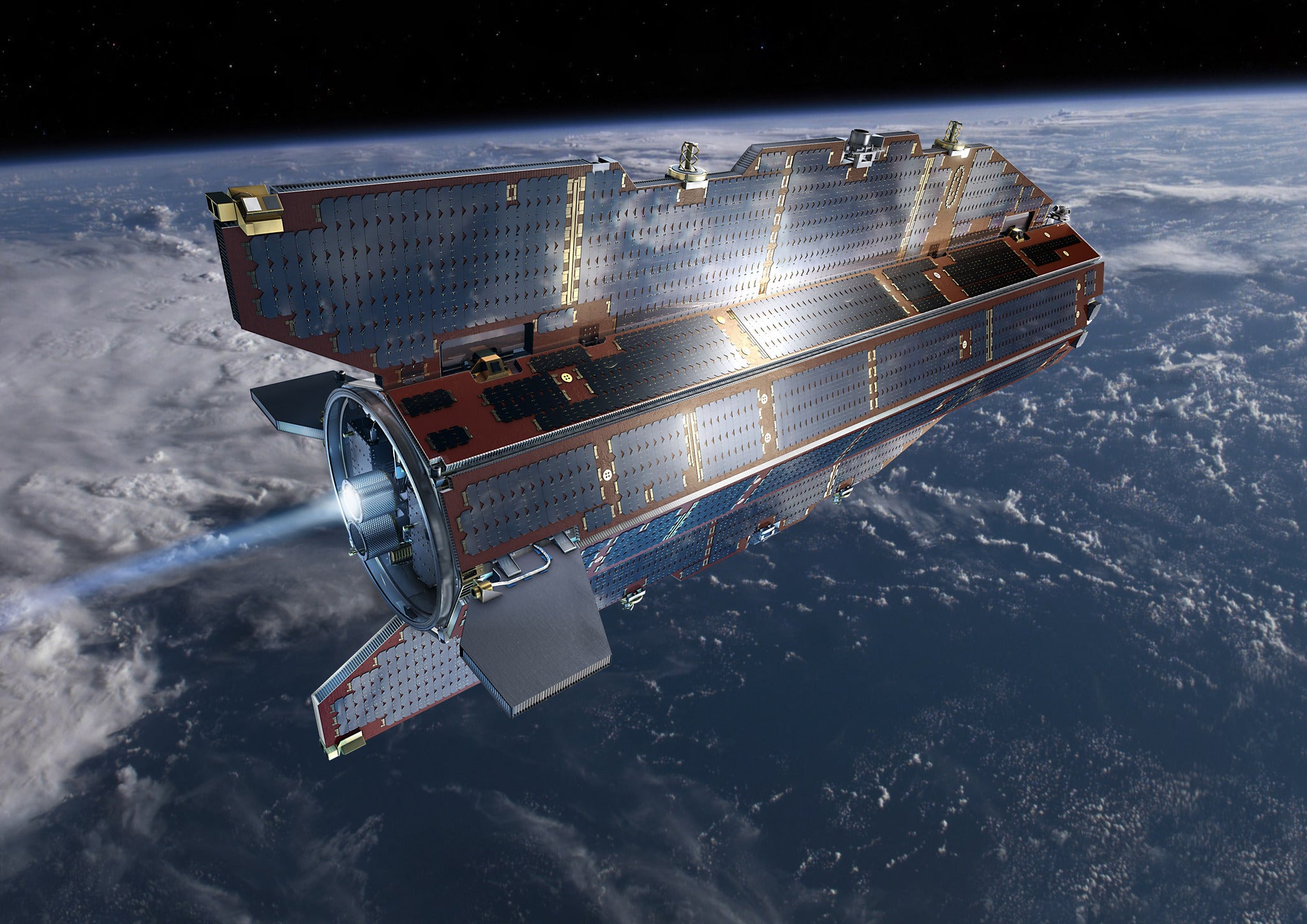The Independent's journalism is supported by our readers. When you purchase through links on our site, we may earn commission.
One-tonne satellite will fall back to Earth in an unknown location
The spacecraft has been mapping the Earth's gravity but ran out of fuel a month ago and has been losing altitude ever since

A one-tonne satellite operated by the European Space Agency (ESA) has run out of fuel and will fall back to Earth in an unknown location sometime in the next few days.
The Gravity Field and Steady-State Ocean Circulation Explorer, or GOCE, has been mapping Earth’s gravitational field for just over four years, but has been losing altitude by 2.5 miles a day over the past month.
It’s expected that between 25 and 45 fragments of the spacecraft will survive the descent through the atmosphere in an anticipated event known as an ‘uncontrolled entry’.
Parts of the satellite as heavy as 90kg could make it all the way to the Earth’s surface, forming part of the 100 tonnes of material that is estimated to fall from space each year.
Despite the seemingly dangerous nature of this event, the scientists involved with the project have assured the public that the chances of the debris actually hitting anyone are very small. The impact of GOCE’s re-entry (pronounce GO-chay) will affect an area approximately 13 to 18 metres squared.
“If you compare that to the surface of the planet, it’s a very small number,” the flight’s mission manager, Rune Floberghagen, told the New York Times.
Floberghagen added that “It’s rather hard to predict where the spacecraft will re-enter and impact,” but suggested that current estimates favour “a re-entry on Sunday, with a possibility for it slipping into early Monday.”
As of Wednesday GOCE was reportedly 113 miles up, orbiting Earth directly over the poles every 88 minutes. Due to the rotation of the planet this means that the satellite’s debris could fall anywhere on the planet.
Previous ‘uncontrolled entries’ have included a decommissioned Nasa satellite that fell into the Pacific two years ago and malfunctioning Mars probe, launched by Russia, that also hit the Pacific. There have been no known instances of space debris injuring people to date.
What was GOCE’s mission?
GOCE was a unique craft, specially designed to operate in a low, Earth-hugging orbit that brought it closer to the planet that any other research satellite to date.
A sleek design and stabilising fins reduced its drag, whilst an ion propulsion system allowed it to maintain an altitude of 260km, skimming along through the threadbare patches of air that persist that high up.
These ion thrusters produce very little power compared to chemical rockets but are incredibly precise and can be maintained over long periods of time.
A gradiometer on-board GOCE allowed it to map the planet’s gravity with “unrivalled precision”, with the data it collected offering scientists new insights that spanned topics from ocean currents to the first global map of the boundaries between the Earth’s crust and mantle.
“The outcome is fantastic,” said Volker Liebig, ESA’s Director of Earth Observation Programmes. “We have obtained the most accurate gravity data ever available to scientists. This alone proves that GOCE was worth the effort – and new scientific results are emerging constantly.”
An international team is currently monitoring the craft’s descent from its still-operational sensors.
Subscribe to Independent Premium to bookmark this article
Want to bookmark your favourite articles and stories to read or reference later? Start your Independent Premium subscription today.

Join our commenting forum
Join thought-provoking conversations, follow other Independent readers and see their replies